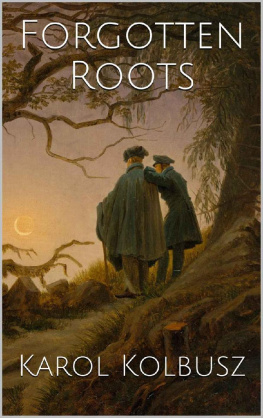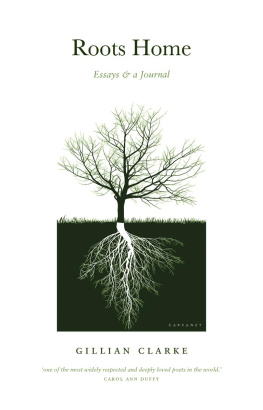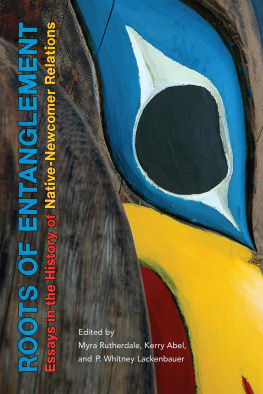Forgotten
Roots
Karol Kolbusz
Copyright 2019 Karol Kolbusz
All rights reserved. No part of this book may be reproduced or utilised in any form or by any means (whether electronic or mechanical), including photocopying, recording or by any information storage and retrieval system, without permission in writing from the publisher.
ISBN: 9781790805228
Cover art: Two Men Contemplating the Moon by Caspar David Friedrich.
www.forgottenroots.wordpress.com
DEDICATION
The present work is dedicated to those who seek direction, hope, and inspiration in their wanderings throughout the dark labyrinths of modernity. May the light of Tradition guide them.
Table of CONTENTS
Introduction | |
| On Progress | |
| On Enthusiasm | |
| On Comfort | |
| On Heroism | |
| On Talents | |
| On Parenthood | |
| On Minimalism | |
| On Sociopathy | |
| On Off-roading | |
| On Hiking | |
| On Forests | |
| On Uniqueness | |
| On Brevity | |
| On Alienation | |
| On Secrecy | |
| On Darkness | |
| On Solitude | |
| On Silence | |
| On Daydreaming | |
| On Concentration | |
| On Patience | |
| On Anger | |
| On Indifference | |
Summary | |
Appendix A How to Meditate | |
Appendix B Establishing Sacred Space | |
Appendix C Recommended Cultural Works | |
ACKNOWLEDGMENTS
The author would like to express his heartfelt gratitude to Ryan Dziadowiec for proofreading the entire text and suggesting additions and modifications.
Introduction
The following work is a compilation of my philosophical essays. The topics discussed in these writings stem chiefly from my reflections upon the spiritual condition of the European peoples in our present century. It is beyond any question that the modern world is a very sad place. Millions of people are suffering from depression, anxiety, hopelessness, and a lack of higher ideals in life. I believe that these problems indicate that we have lost our way on the path of civilizational progress, and that the very foundations upon which modernity is built are weak, rotten, and in urgent need of repair.
The purpose of this work is threefold: to examine these issues, to find possible explanations for the current spiritual crisis, and to put forward both short-term coping strategies and long-term solutions that could resolve it. The modern man has been severed from his own cultural and spiritual roots and I believe that we need to return to the old ways of our ancestors. Although traditional Indo-European philosophy and spirituality are the cornerstones of this book, indicating my desire for preserving the presented points of view, it does not aim to promote any political ideology. Every genuine seeker of knowledge and inspiration, regardless of his or her opinions, is therefore welcome to read my essays.
The poetic threads interwoven with the main body of the work serve the function of introducing my readers to a certain atmosphere and mood. Many of them have been (loosely or directly) inspired by my friends, people that I like and respect. The essays can be read selectively, though full comprehension and appreciation may require reading them all in the originally intended order. At the very end, I have included a list of recommended books, films, music, and visual artists. I hope you will find my recommendations useful in your cultural journeys.
ON PROGRESS
What Westeners call civilization, the others would call barbarity, because it is precisely lacking in the essential, that is to say a principle of a higher order.
Ren Gunon
The warm light of the March sun was shining through the gaps in the high, white clouds. An old man was standing in a place where, many years ago, there used to be a beautiful rural park and a playground. He remembered how every afternoon of the pale spring he would see children and teenagers joyously playing together and riding their bikes. As soon as the sun sank down below the horizon, the shadows would creep out and cover the park with a shroud of tranquillity. Now, a huge shopping centre stands there, bustling with activity, yet lifeless. The old grove of magnificent oak trees was cut down and the playground is no more. The youth are nowhere to be seen. Due to universal access to the Internet, their socialization is no longer limited to the playgrounds and parks of real life. Such is the nature of progress it promises us artificial paradises of convenience, concrete, and plastic, but at the same time it conceals or destroys what is simple, direct, and organic.
***
The modern man is enamoured with the notion of indefinite progress. First of all, he is being told that he should take pride in the sophisticated technological advancements of our times. It is beyond any question that they have made our life easier, more convenient, and gave us opportunities unimaginable to the so-called primitive peoples. In my opinion, technological progress is not inherently a curse, as long as it is moderate, just like in the Classical Antiquity. The smart use of fire, wheel, nail, soap, compass, and paper contributed to the betterment of mankind. However, the disadvantages of unlimited progress in this field have outweighed the benefits in the last few centuries with the invention of technologies such as the steam engine, electricity, the telephone, and the internal combustion engine. Decades later, owing to the extensive use of television, mobile phones, and the Internet, we have only become lazier and lazier, more dependent on modern facilities, or in other words tamed by the very same tools we have created in order to control our natural environment. We have replaced the strength of our muscles with mechanical tools and the brilliant capabilities of our brains with computers. Millions of trees and hectares of ancient groves have been chopped down to clear the way for urbanization and industrial expansion. Never before in the history of the world have we witnessed such enormous environmental destruction of our blue planet.
Interestingly enough, in our current age, the primary motivation behind the endless pursuit of new technological advancements is not curiosity or willingness to improve the material condition of mankind. These are merely justifications given to the public. In reality, the producers of thousands of new gadgets every new year are driven by nothing but sheer greed. They are experts at creating artificial needs and duping consumers into believing that they must satisfy these needs at all costs. The modern man, trapped in the vicious circle of consumerism, has been manipulated to prioritize money-making and compulsive shopping over spending time with family members, celebrating traditions, cultivating health of the body and the soul, and strengthening connection with nature and the soil. There is nothing wrong with accumulating wealth, though, provided that it is used for noble purposes and not used as a key to the hellish gate of hedonistic pleasures. Unfortunately, it is the latter case that is prevalent in the modern world. We can conclude that with every technological novelty we are being thrown deeper and deeper into the poisoned wells of comfort and hedonism, at the significant expense of regression in the realm of spirituality. A valid argument against further technological progression is that the time between each new advancement decreases exponentially, thus giving people less and less time to consider the long-term implications of embracing the latest technologies. For example, the Internet has only existed for a few decades, and we still do not thoroughly understand how its daily usage can affect our mental and physical health.
Next page








